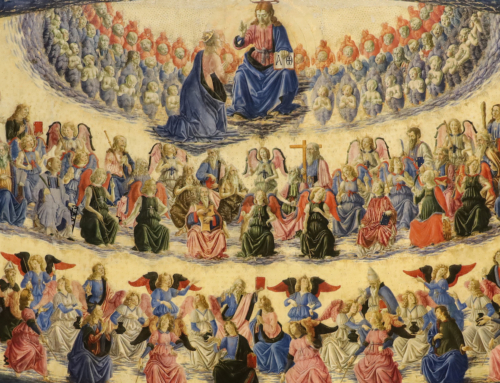In a remarkable piece of long-form journalism in the latest issue of The Atlantic, contributing editor Graeme Wood investigates “What ISIS Really Wants.” That he hits the nail on the head is perhaps best evidenced by the multiple times the article has been tweeted out by ISIS supporters. Although Wood did travel the world to meet with ISIS ideologues and jihadi-Salafi sympathizers, he notes that anyone familiar with their propaganda can clearly recognize the ideological principle of the organization:
Virtually every major decision and law promulgated by the Islamic State adheres to what it calls, in its press and pronouncements, and on its billboards, license plates, stationery, and coins, “the Prophetic methodology,” which means following the prophecy and example of Muhammad, in punctilious detail.
What is “the Prophetic methodology”? As Wood explains, it is the careful emulation of the prophet’s own message, manner of life, and method of Islamic expansion, seen especially in the establishment of an Islamic caliphate modelled off of the earliest days of Islam. Willfully ignored by the West, this Prophetic methodology sheds light upon the practice and aims of the Islamic State: Why does ISIS crucify and mutilate the enemies of Islam? Why does ISIS reject borders and lasting peace treaties? Why does ISIS execute apostates? Because such is the Prophetic methodology.
Prophetic methodology in general is familiar to the Christian. As God incarnate, Christ is more than a prophet, and yet truly a prophet. He truly speaks in God’s name, and Christians are indeed called to imitate Him. After Jesus stoops down to wash His disciples’ feet, He tells them:
Do you realize what I have done for you? . . . I have given you a model to follow, so that as I have done for you, you should also do. (Jn 13:12-15)
In imitating Muhammad and in imitating Christ, two very different prophetic methodologies find expression. Nowhere has the contrast been seen more clearly in recent days than on the Mediterranean shores of Libya. There, twenty-one Coptic Christian men knelt in the sand, each with an Islamic State believer standing behind him. Both invoked the name of their prophets. Both professed to follow in their prophet’s footsteps. From the sand, the Christians invoked their slain Savior, “Lord Jesus Christ. Help me Lord Jesus.” With the sword, the Islamists invoked Muhammad as their witness: “We will conquer Rome, by Allah’s permission, the promise of our Prophet, peace be upon him.”
These two prophetic methodologies reflect two very different claimants to the prophetic office. Jesus embraced the cross upon which He died, forgiving the very men who crucified Him; Muhammad embraced the sword in order to seize Mecca, conquering the very men who had plotted his assassination. Jesus fulfills the Old Law, commanding the love of enemies, removing the violence of its judicial precepts; Muhammad speaks Allah’s last word, sanctioning the violence of his Arabian conquest, the stoning of adultresses, the mutilation of thieves.
Let us not forget that claiming to be a prophet is a bold assertion indeed: to speak for God Himself. Such a claim demands to be “backed up.” Here again our prophets differ starkly: Jesus healed lepers; Muhammad raided caravans. Jesus raised the dead; Muhammad raised an army.
Broad strokes? Certainly. By all means, investigate the details for yourself. But if we heed the counsel of Wood’s column, we dismiss the difference at our own peril.
The temptation to do so, to ignore real prophetic difference, falls into an error which I am inclined to label a third prophetic methodology all its own. Its precepts and taboos are seen in its willful ignorance of ISIS’s true Islamism. Wood relates how, in the opinion of one prominent scholar, even Westernized Muslims have come to adopt certain elements of this politically correct methodology:
Muslims who call the Islamic State un-Islamic are typically, as the Princeton scholar Bernard Haykel, the leading expert on the group’s theology, told me, “embarrassed and politically correct, with a cotton-candy view of their own religion” that neglects “what their religion has historically and legally required.” Many denials of the Islamic State’s religious nature, he said, are rooted in an “interfaith-Christian-nonsense tradition.”
This secular prophetic methodology (or what Haykel cheekily labels the “interfaith-Christian-nonsense tradition”) is one that minimizes religious difference, seeing all religion as equally subjective, sentimental, and good.
Adherents adopt a cotton-candy view of all religions, willing it to be true that they are like so many kaleidoscopic shards, radiating the humanistic beauty of the Golden Rule and John Locke’s no-harm principle. This farce is on shameful display whenever its messengers engage in their religious-blame balancing act, claiming that violence done by religious persons is shared by all religions equally or cannot be ascribed to the beliefs of any particular religious group. All religions are equally valid, they say, overlooking the actual lives of the prophetic claimants and the boldness of their prophetic claims.
In the face of ISIS, some see this secular myth of religions’ equality as our only hope of peace. But in the end it offers no such thing—not just because its anthropocentric individualism tends towards demographic decline, but for a more fundamental reason. The secular West may have banished God to the realm of the subjective and the sentimental, but the hearts of mortal men will always yearn for God’s return to objectivity—for a prophet, and more than a prophet—for God with us.
What the world really wants is given only by one—the one who was spurned and rejected, the one who loved unto death, the one whose grave is empty and whose name still echoes on Libyan shores—the “Lord Jesus Christ.”
✠
Image: Gala Medina, Lifeguard’s chair







